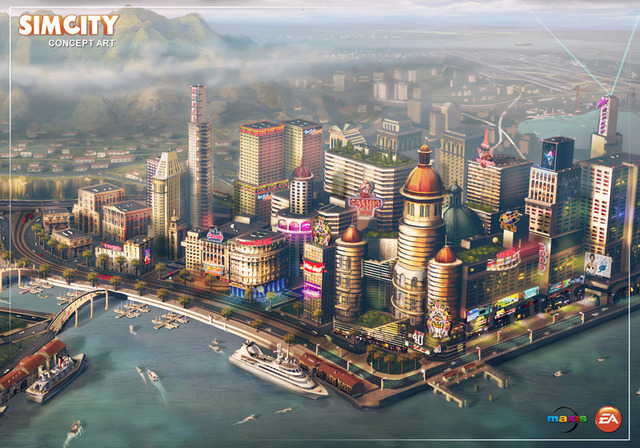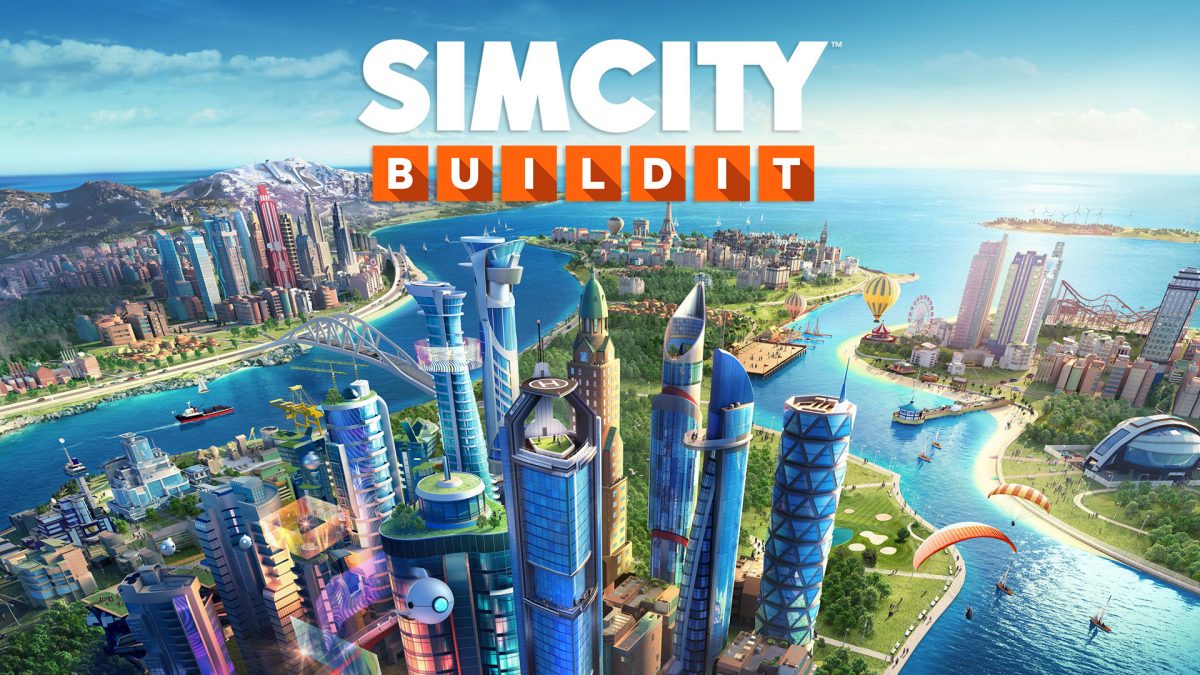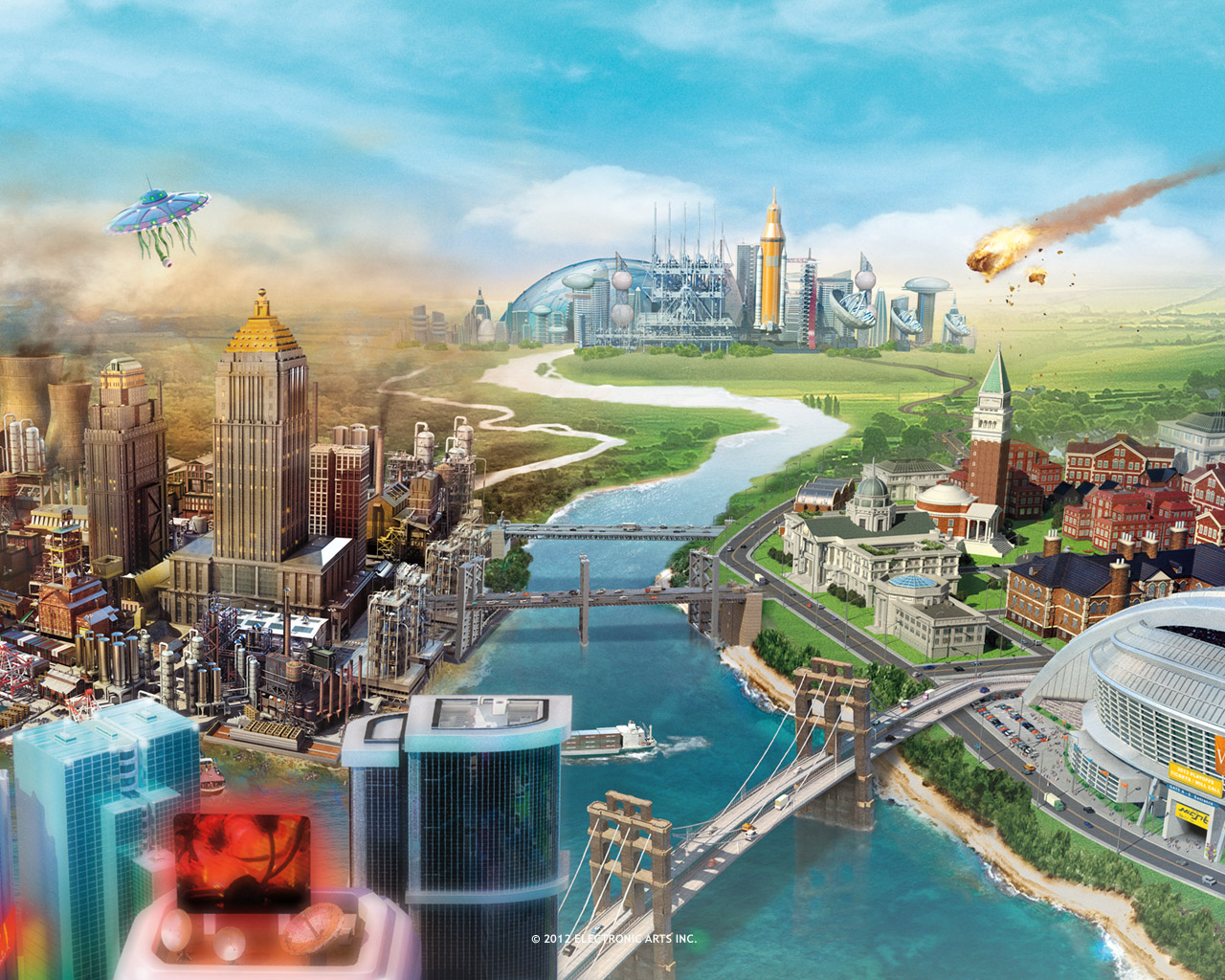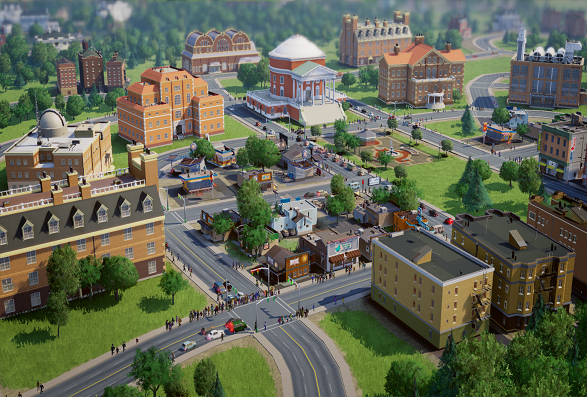
SimCity was one of the big games EA highlighted this year at E3, and it definitely caught my attention at the booth’s presentation. It’s a game that is truly aiming to update the series for the next generation – everything seems to have been redesigned to make city-building easier, the user experience more appealing and addictive, and the strategy needed more challenging and unique.
This is due to perhaps the biggest change this time around – full online multiplayer, for the first time since SimCity 2000 Network Edition, although it’s playing out in a much different way this time. Rather than multiple mayors residing in one city, and sorting things out among themselves, SimCity gives each player online their own city and allows co-operation and trading between them. The upshot of this is that several players working together can make a national economy, with several specialised cities, rather than one enormous do-all megatown.
For instance, an industrial city is hardly going to be the prettiest to look at, or the most interesting for tourists to visit. But – an industrious city is a highly lucrative city, and may have a lot more power online when trading with your friendly neighbours. Your mate who picked the shiny tourist city will be looking at big bills to purchase attractions, and another friend might be looking at making a business-centric city for the white collars. This encourages players to form mutually beneficial or symbiotic relationships, with backstabbing and plotting potentially kept to a minimum, just like real life politics.
One of the most fun (for me in primary school, anyway) elements of the SimCity series has always been the natural disasters. These visually impressive effects come at the most inopportune times – tornadoes, meteor strikes, earthquakes and UFO invasions. You can check out a few of them in the below video, as well as how they affect some of the cities players can build:
[iframe src=”https://boom.boomvideo.tv/video.php?pi=distro&mc=300&pw=300&in=300&up=N&ssc=Y&od=N&fta=Y&ap=N&sm=N&fid=4AAdR_VnE9f2&cta=N&sv=0845C0BB-5AE0-CC14-9115-AAD93D48FFAD&vc=Y&ds=Y&fb=Y&fbp=Y&twf=Y&subid={DynamicParameter}” width=”100%” height=”480″]
As you can see, the main thing to deal with when a disaster occurs is the recovery. Having an ample and ready force to deal with emergencies is a necessity – fire stations, hospitals and police all become extremely important in the midst of a crisis. If you get hit by a disaster, you’ll be taking a hit to your wallet as well as you find ways to rebuild, but the alternative is potentially a lot worse.
Cities deteriorate the longer they’re left without vital resources. Leaving a city without a police station, or schools, results in what you’d expect – a rise in the crime rate. With SimCity‘s new Glassbox engine, this can be displayed progressively on-screen, as buildings begin to look tattier and graffiti creeps along their walls. What’s worse, if you’re playing online, is that if you leave your city to fester in poverty and crime, it can spread to other players in your game. Criminals can leave your city and begin to raid others – robbing banks, causing mischief and no doubt annoying all of your buddies.
SimCity certainly is a departure from the traditional series, but then that appears to be why the game has been re-titled to simply ‘SimCity’ and not SimCity 5. There’s a fundamental shift in the way the game is played, so that you’re not just watching out for your own city, but all of your friends’ cities as well. We’ll find out next year how well gamers can set aside their knives and military hardware, and work together for mutually beneficial town planning, when the game is released on PC in February 2013.
This is a sponsored post but opinions are my own.







